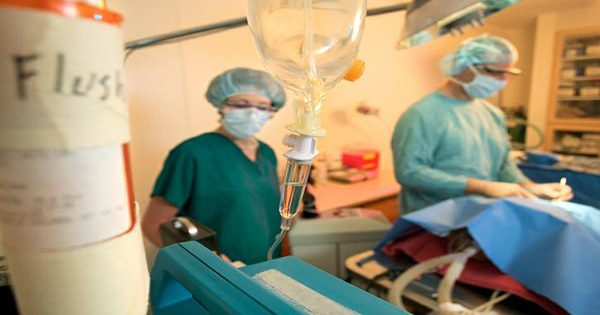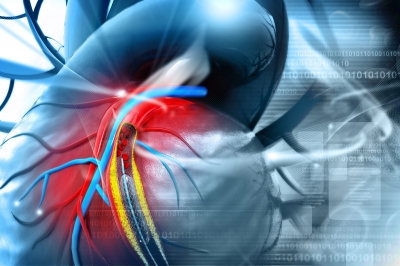Are the effects of shift work putting your heart at risk?
 According to the bureau of Labor Statistics, 15 million people work evening shift, night shift, rotating shifts or other schedules outside the traditional 9 am to 5 pm work day. These non-traditional hours are called shift work.
According to the bureau of Labor Statistics, 15 million people work evening shift, night shift, rotating shifts or other schedules outside the traditional 9 am to 5 pm work day. These non-traditional hours are called shift work.
Some shift workers include nurses, doctors, firefighters, police officers, flight attendants, pilots, waitresses, and truck drivers.
Shift work had been linked to various health conditions.
Health effects of shift work
Cardiovascular disease: Shift work increases cardiovascular disease on average 40%. The longer you perform shift work, the greater your risk.
Continue reading
Symptoms of a Heart Attack in Women
 Heart disease is not a ‘man’s disease’.
Heart disease is not a ‘man’s disease’.
Heart disease is the number one killer of women. It is more deadly than all forms of cancer combined. One in thirty-one US women die from cancer each year. One in three die from a heart attack annually.
Protect yourself by knowing your risk factors for heart disease, such as obesity, smoking, menstruation has stopped, high blood pressure, diabetes, high cholesterol, physical inactivity, and family history of arteriosclerotic heart disease before age 60.
According to Dr. Larry Weinrauch, very few pre-menopausal women have heart attacks, unless they smoke, have diabetes, or are on birth control pills for a long period of time. Smoking seems to be the biggest risk factor.
Heart disease symptoms can be different for women than men, which can lead to misdiagnosis and/or delayed treatment.
Heart attack warning signs for women:
Continue reading
Healthy Holiday Eating: 7 Health Benefits of Your Favorite Holiday Foods
 Even though holiday meals are often calorie-dense, you do still achieve healthy holiday eating and reap some heart healthy benefits. Here are seven classic holiday foods with hidden health benefits.
Even though holiday meals are often calorie-dense, you do still achieve healthy holiday eating and reap some heart healthy benefits. Here are seven classic holiday foods with hidden health benefits.
Pumpkin pie
One of the healthier dessert options, pumpkin pie provides fiber, manganese, copper, magnesium, zinc, and various B vitamins. A diet high in fiber supports healthy cholesterol levels, while consuming adequate magnesium promotes lower blood pressure.
Cranberry sauce
Cranberries are a rich source of antioxidants, including vitamins C and E. Antioxidants protect against free radicals, a step towards preventing heart disease and cancer.
Sweet potatoes
Sweet potatoes provide fiber, vitamins C, beta carotene, manganese, and potassium. A diet high in potassium promotes a healthy blood pressure. One sweet potato provides 428 mg of potassium.
Mashed potatoes
White potatoes contain vitamin B6, potassium, copper, and vitamin C. Vitamin B6 promoting normal homocysteine levels. Elevated homocysteine is associated with plaque build-up and blood clots. One cup of mashed potatoes provides 32% of the daily recommended intake for vitamin B6.
Green bean casserole
Green beans contain carotenoids, flavonoids, vitamin C, beta-carotene, and manganese. Carotenoids provide anti-inflammatory benefits to protect against heart disease. Green beans also provide heart healthy omega-3 fatty acids.
Turkey
While there is not truly enough tryptophan in turkey for it to be the cause of your post meal nap, turkey is a rich source of heart healthy lean protein, providing 26-grams of protein per three-ounce serving with only 2 grams of fat.
Pecans
Twenty-two pecans provide 20 grams of heart healthy unsaturated fat. Adding just a handful of pecans to your daily diet will help prevent heart disease.
Choose Wisely for Healthy Holiday Eating
While holiday foods provide heart healthy nutrients, they are often prepared with extra fat and sugar leading to calorie-dense options. Going overboard can counteract the heart healthy benefits.
If you are working to improve cholesterol or blood pressure but struggle to stick with healthy choices week after week, access How to Make Heart Healthy Changes into Lifelong Habits here.
All the best,
Lisa Nelson RD
Health Pro for HealthCentral
Laughter Yoga Makes You Happy and Healthy

Laughter Yoga that started 2 decades ago in Mumbai by Dr. Madan Kataria is now famous all around the world. Today there are 10,000 laughter clubs in 76 countries working to spread laughter everywhere. In 2015, laughter yoga turned 20 and thousands of people participated in the celebrations.
Whether you’re faking a laugh or really laughing, the mental and physiological effects are the same. This is the principle on which the laughter yoga works.
- There are no jokes to make the participants laugh. They are only asked to connect with their inner happiness.
- There are some joyful laughing practices and yogic breathing.
- The participants wake their inner child and have fun with one another.
- Laughter Yoga is medically and scientifically approved.
- Big companies practice laughter therapy to keep their workers healthy both mentally and physically.
Stent Procedure to Treat Coronary Artery Disease
 Over the past 20 years, treatment options for coronary artery disease (CAD) has become much more effective and commonplace. This often leads patients to ask fewer questions about treatment options, advances, and benefits. Instead, questions focus on monetary cost and logistics of the planned procedure versus how quickly they will return to normal daily activities.
Over the past 20 years, treatment options for coronary artery disease (CAD) has become much more effective and commonplace. This often leads patients to ask fewer questions about treatment options, advances, and benefits. Instead, questions focus on monetary cost and logistics of the planned procedure versus how quickly they will return to normal daily activities.
A stent procedure is one frequently used treatment option for CAD. When plaque builds up inside an artery, blood flow to the heart can be compromised. The blockage leads to coronary artery disease and can result in chest pain and a heart attack.
Most stents are tiny wire mesh tubes placed within an artery to help keep it open and blood flowing as needed. A medicine coating on the stents is slowly released to prevent re-blockage of the artery.
A conversation with a stent patient and cardiologist
Knowing the right questions to ask proved to be of special significance for CAD patient Shawna Dukes. A combination of active research and persistence with doctors enabled Shawna to ask the right questions, which ultimately saved her life. After consulting with a number of physicians who could not determine the cause of her extreme fatigue and overall discomfort, she finally found answers from her interventional cardiologist. He determined that getting a stent that promotes faster healing was the right treatment option for her, and one that gave her back control of her health again.
Shawna and her interventional cardiologist, Dr. Colin Barker, took the time to answer a few questions regarding her situation and results.
Lisa Nelson RD: Shawn, please tell us about your heart condition and how your personal research led to a diagnosis and treatment plath?
Shawna Dukes: I’m a very active person. I live a very active lifestyle. Several months ago, out of the blue while I was doing one of those activities of working out, I had troubling symptoms of throat and neck tightness. I had chest tightness on my left side. I had numbness that ran down my left arm.
They were symptoms that I had never experienced before. It definitely got my attention. Over the next several weeks, I had them again and again. It led me to my primary care doctor. Through him and a couple more doctors, and about ten diagnostic tests along the way, I was told I had coronary artery disease and angina. I was given medication for that.
But it limited my lifestyle. I couldn’t do the things I was doing before without those symptoms flaring up. I really didn’t think that was my best solution. It didn’t sit well with me, that this was going to be my new normal. With my symptoms that kept breaking through, even when I was on medication, on a particular day when they were very severe, I thought, “I really need to seek someone else. I need to get an answer from someone else.”
That led me to Dr. Barker. The day that I had the very severe symptoms, he saw me. Finally, I learned the cause of it. It was the 90% blockage of a major artery of my heart. That day, he had me in the cath lab. He performed a procedure to implant a stent. It’s the SYNERGY stent that I received. Within minutes, I felt better. A few weeks later, I was back to my very active lifestyle of working out every day and walking a couple of miles with my dog. It just restored my life and gave it back to me.
Do Probiotics Lower Blood Pressure?
 Probiotics have been linked to health benefits, such as improved digestion, reduced depression, a stronger immune system, and prevention of urinary tract infections. Researchers are now exploring a possible connection between probiotics and blood pressure.
Probiotics have been linked to health benefits, such as improved digestion, reduced depression, a stronger immune system, and prevention of urinary tract infections. Researchers are now exploring a possible connection between probiotics and blood pressure.
What are probiotics?
Probiotics are live bacteria and microorganisms that promote proper bodily function, especially within the digestive tract.
The body is full of “good” and “bad” bacteria. Probiotics are often referred to as “good”.
Probiotics are naturally found in the intestines to assist with food digestion, elimination of disease-causing microorganisms, and vitamin production.
Probiotics to lower blood pressure
How the body maintains a stable blood pressure is complex with numerous biological pathways. One pathway involves angiotensin converting enzymes (ACE) responsible for vasoconstriction of blood vessels. ACE inhibitors are blood pressure medications that inhibit the function of ACE. Probiotics have been shown to have similar ACE-inhibitory activity via the production of antihypertensive peptides. (FYI – Peptides are a combination of amino acids. Amino acids are the build blocks for protein.)
Researchers reviewed human studies on the effect of probiotics on blood pressure. Evaluation of nine trials found probiotic consumption to lower systolic blood pressure by 3.56 mm Hg and diastolic blood pressure by 2.39 mm Hg.
Greater blood pressure reduction was seen when multiple versus single species probiotics were consumed and if baseline blood pressure was above 130/85 mm Hg versus less than 130/85 mm Hg. Greater reduction was also seen in individuals who consumed the probiotic for a duration greater than 8 weeks.
This research analysis suggests probiotic consumption may modestly improve blood pressure levels.
Continue reading



